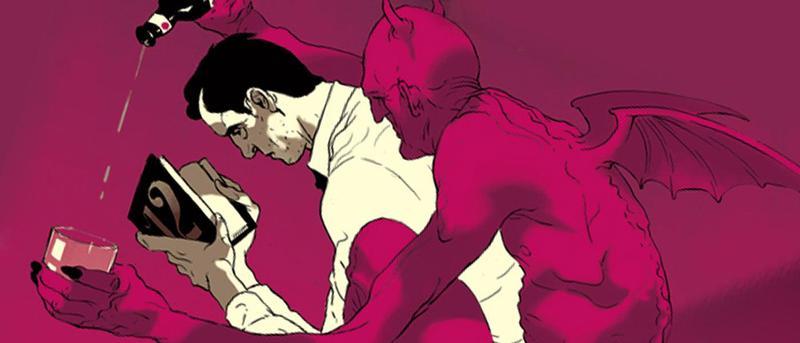Taste the Void: Pagans vs the 12-Step Movement
Taste the Void: Pagans vs the 12-Step Movement
Separation of church in state is good in theory, but often doesn’t manifest as such in the real world. The 12-Step model of recovery that is often mandated by the courts claims to allow everyone to chose their own conception of a higher power, yet at the end of the day the group-think of the sheeple tends to win out. So what is it like to mix a “pagan path,” for lack of a better term, with a group spawned of mainstream western religion? That is what we are going to look at here.
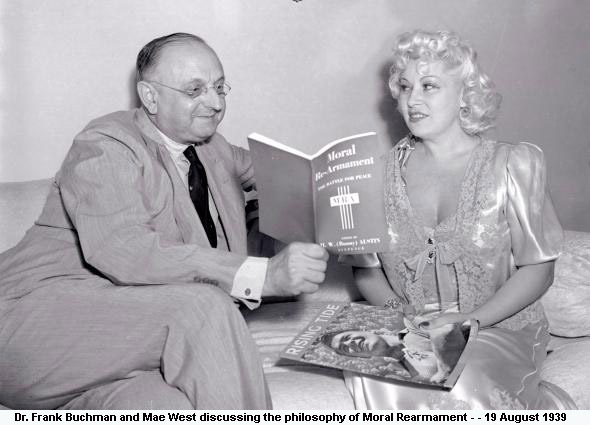
By their own admission, the 12-Step movement came out of the Oxford Group. In 1921, missionary Frank Buchman in Akron, Ohio, founded the organization, which is also the birthplace of the 12 steps. Frank had some “interesting” ideas. The primary one being “god control”; he claimed “the only sane people in an insane world are those controlled by god.” Nothing is shocking about a Christian not fully grasping the contents of their Bible, but “free will” seems like an important part to miss out on. In fact, mental institutions are filled with people who are being controlled by “God.” He also said that “Denmark was a miracle among nations and could demonstrate spiritual power to be the first force in the world.” I tend to agree with him here, as Denmark was the birth place of the prophet King Diamond, whose falsetto I have been following most of my life.
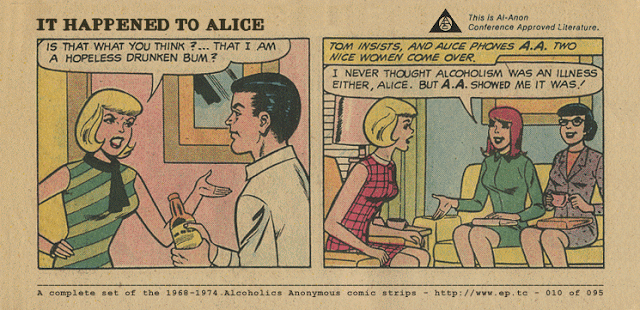
With these roots taken into consideration, it makes you wonder, just what is your understanding of a higher power intended to be? The 12-Step Movement is very protective of organized religion. Their literature states you should not have contempt prior to investigating, so it makes sense the morals espoused are defined by the fundamental Christian perspective, and they even define defects of character as the seven deadly sins. For someone who doesn’t believe in shame-based measures, or good and evil, it seems to work better to look at what behavior is effective or ineffective, rather than trying to please an all-seeing Judge Judy in the sky. In the third step, you are told to turn your will and life over the care of a “god as you understand him.” This was written before World War II, so gender identification was rather limited; even when it came to deities, Americans thought of gods in a rather myopic scope. But thinking is not a virtue in 12-Step circles. Not only are you told to see where churchgoers are right, but also, common catch phrases in meetings are things like “dumb it down” and other negative self talk, like “my best thinking got me here.” On multiple occasions, you can hear someone admit they are brainwashed, and say their brain needed washing. With cult-like adherence, the gurus are always right. The two most canonized are Bill Wilson and Dr. Bob, the founders who penned the book “Alcoholics Anonymous” that is often cited as being a collaboration of the first 100 men – since the organization is not supposed to have any leaders, only trusted servants. I have attended a meeting where the discussion leader said, ‘if your name is not Bill Wilson, then I don’t want to hear your thoughts.” I asked if his name was Bill Wilson, then I got up and left.

Bill Wilson, the founder of the modern 12-step model, was a salesman, thus the literature is written to hook you in with its pitch. This involves the classic sales tactic known as “the take away,” stating “perhaps you aren’t one of us, go try to have a few and see how that works out.” He never claimed his organization was the only way to get sober, but like with Jesus’ teachings, his followers are sometimes unclear on the original message. The 12-step model is not the only show in town, others include Lifering, SMART Recovery, SOS, Women for Sobriety and Moderation Management. Finding these meetings is harder than finding a Fight Club. I used Lifering’s search function and they gave me an A.A. clubhouse. SOS only has two meetings a week at opposite ends of the city. Smart Recovery has three, and Moderation Management doesn’t have a meeting list for my city, only two people you can meet with for coffee. These organizations struggle for visibility due to the fact that the 12-step model came out 40 years before them, treatment centers know 12-step meetings are easier to find and more abundant so continue to refer their clients to them, and thus the cycle spins.
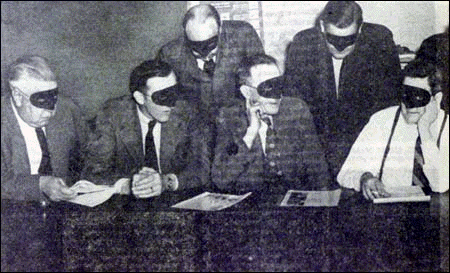
Having a support network is an important element to lasting sobriety, but if you are like me and have been turned off by the heavy-handed religious side, it’s best to take what you need and discard the rest. It might be a good idea to start a “pagan group” of your own for this support. However, I will warn against doing so within the confines of 12-Step Clubhouses. My experience of doing so in one of the downstairs rooms of a local clubhouse, the tolerance of other schools of thought was brought into question. We were sharing a locker with one of the more open minded sub-groups I have been a part of, and had a member of that group steal our phone list and call members of the pagan group, telling them they needed to “take their devil worship elsewhere.” Oddly, this person somehow skipped over calling me, so when I went to confront him in person, he bolted out the door. I guess the courage he had to “change the things he could” did not apply to that situation.
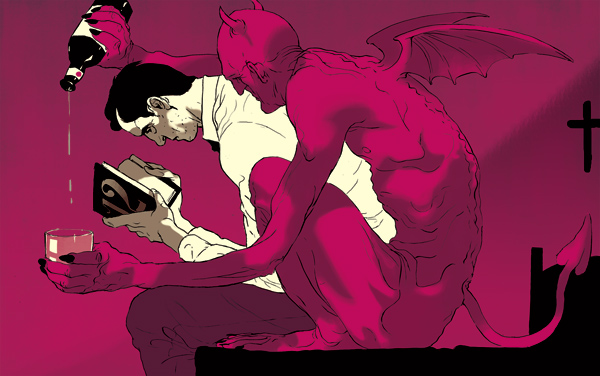
Many of the “pagan” organizations I am affiliated with have members who use mind-altering substances as sacrament. I did the same back in the day, but personally feel uncomfortable doing so now, given my track record; everyone must follow their own path in this regard. When I do interact with “muggles,” I keep the specifics of my personal beliefs to myself in hopes they will do the same. After all, the word “occult” means hidden, and the more secure I’ve become over the years in my own beliefs, the less I feel the need to convert or explain myself. Sure, I have platforms like this to explain the facts regarding varied schools of thought, but they are not for everyone. After 14 years, I attend meetings once a week to show there is not just one path to recovery, and that it is possible without the traditional forms of organized religion. As I have remained sober, I have seen many people who swore by the more conventional forms ofPagan organized religion relapse or even kill themselves. At the end of the day, just like anything else in life, whatever you put into recovery is what you get out of it.
WIL CIFER /CVLT NATION
Be the first to post a message!
